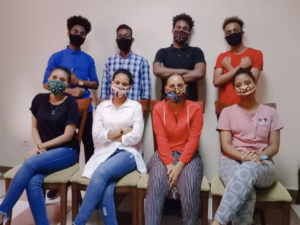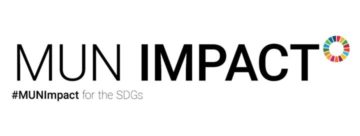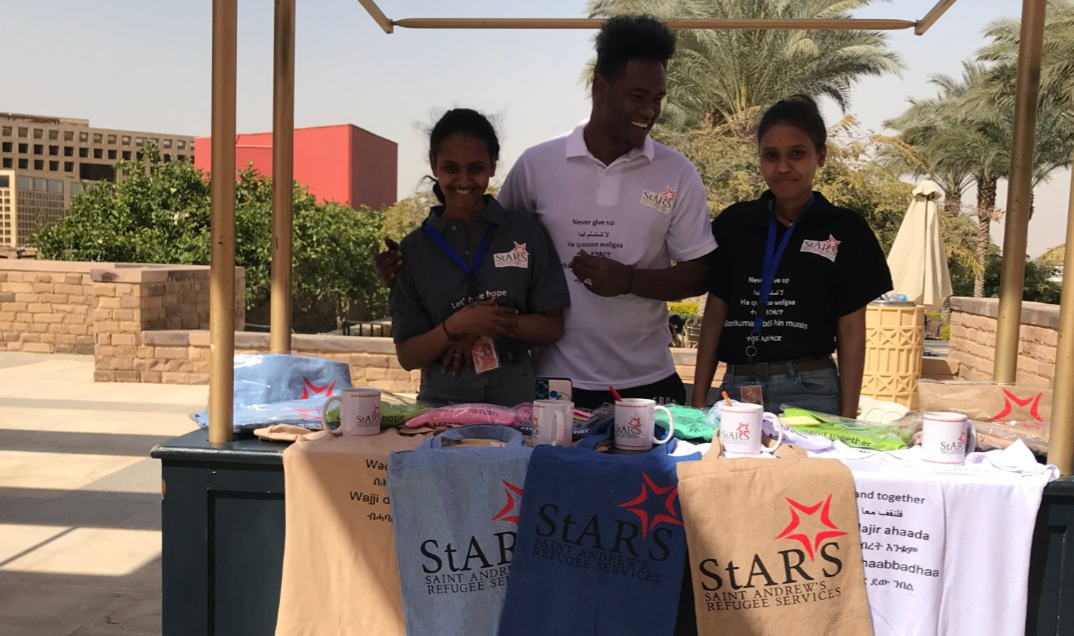Imagine stepping into a new country. No family, no friends, no familiarity. It’s as though you’ve entered a maze with all its twists and turns and dead-ends. But with some assistance — with someone who knows the maze — you might be able to find your way out. Saint Andrew’s Refugee Services (StARS) has acted as this guide for refugees in Egypt since 1979. Their vision is to create “a safe, inclusive and supportive environment for refugees in which they can exercise their rights, pursue their aspirations, and live in dignity.”
On June 24th, many MUN@Home participants, who are currently learning about the UNHCR and refugees, tuned in to listen to the Youth Advisory Board from StARS. They heard first-hand experiences about the refugees from the Board, the mission of StARS, and the invaluable work they are doing in Egypt.
Their vision is carried out through client-centered programs which provide financial, technical, legal, and educational aid to refugees, with the ultimate goal of re-integration into society. On their own, this is an utterly unreachable goal for displaced persons. Studies reveal that only 1 in 300,000 refugees globally receive educational opportunities; for many, this means the inability to learn, integrate into society, and live a normal life. However, the Youth Advisory Board from StARS is determined to prevent this unfortunate fate.

All of the Advisory Board members, refugees themselves, migrated from countries such as Ethiopia, Somalia and Eritrea. “My only goal was to cross the Mediterranean, not education,” says member Adulkarim Suliman. Suliman’s honest statement reveals the plight of the refugee’s journey. The gravity and danger of their situation is so great that jobs and schooling are far-off and unthinkable notions. The only thing that matters is escape.
But even on top of their long and treacherous voyages, they continued to face issues like proper documentation and schooling. “It’s not easy to go for an education in Egypt,” Suliman confesses. This is coupled with the barrier of language, alienation of culture, and the trauma of their journey, posing an almost insurmountable wall of obstacles.
In response, StARS provides psychological aid and educational opportunities for both youth (with special recognition to unaccompanied children) and adults, including a six month to one year program for students teaching English and Arabic. Member Yasin, admits that, “the greatest challenge faced by the refugees is language.” When this obstacle is eventually overcome, many refugees must go on to pursue job opportunities, which in some ways present even more issues. The job market is already flooded by Egypt’s existing population, forcing displaced persons into domestic or custodial occupations. But even at this stage, StARS provides additional training and money for refugees to start their own programs. With this model of “supporting refugees by refugees” as stated by Member Birhanu Worku Nisrra, StARS has built a bridge between the mission of the United Nations High Commissioner for Refugees (UNHCR) and the actual people they serve.
Despite the issues under-funding poses and the new challenges Covid-19 has brought about, StARS remains optimistic and determined to help more refugees integrate into Egypt.
_
Contributions: Ayomide Ajakaiye, Vinuth Ratnayake, Jonathan Sunkari

